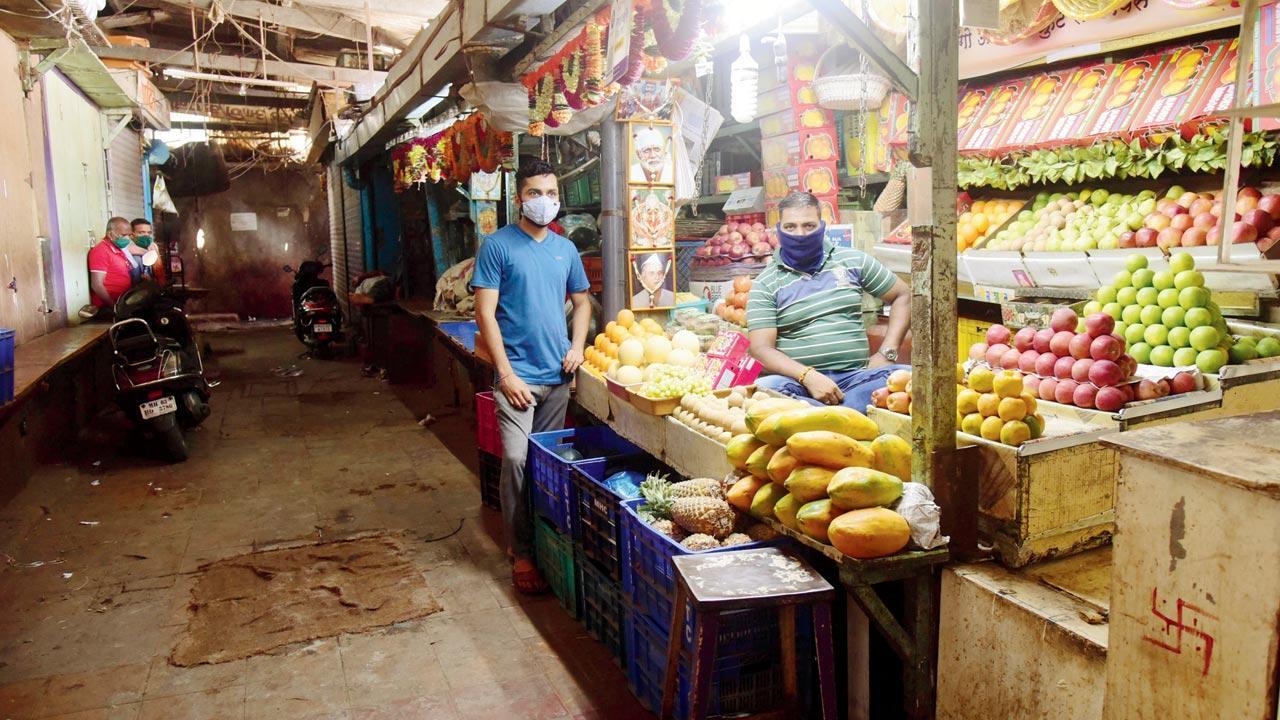Fruit vendors and consumers say the spurt in prices is a result of surging fuel prices as well as the ongoing month of Ramzan

Fruit shops without customers at Vir Savarkar Mandai on Ranade Road, Dadar West. Pic/Suresh Karkera
Amid the festive season, Mumbaikars are finding it difficult to manage their household budget with the skyrocketing prices of fruits and veggies.
Fruit vendors and consumers say the spurt in prices is a result of surging fuel prices as well as the ongoing Ramzan month.
Afsar Khan, a fruit vendor from Bandra said, “The prices of watermelon, papaya, mango, and dates are increasing and may even increase further because of the demand.”
The wholesalers have raised their rates of watermelon from Rs 12 per kg to Rs 20 per kg, said Raj Singh, another fruit vendor, who sells the fruit at R30-R35 per kg. “This has been the rate for the past three months. In the days to come, the prices are likely to rise further,” he adds.
However, a wholesale fruit vendor, Tofayun Sheik in Dadar fruit market, said that a hike during this time of the year is expected. “Every year during Ramzan, fruit prices start to soar. In a week, the price of watermelon may reach R40-60 a kg. After Eid, these prices will drop,” he said.
Consumers feel the hike in fuel prices has contributed to the rise in the prices of fruits. Ijaz Khan, a clothing retailer said, “The rates have increased not just due to Ramzan or ongoing roza but due to the hike in fuel prices.” He added that he has witnessed the prices of watermelon increase from R12 a kg to R60 a kg.
Irfan Khurashi, a businessman, believes that every year the rates of fruits and vegetables are increased due to Ramzan. “After two years of the pandemic, this year the festival will be celebrated wholeheartedly in Masjids. That is the main reason for the rise in prices of fruits,” he said.
Fruit vendors at Mahim , Sanjay Jaiswal and Geeta Waja, get their products from the Vashi wholesale fruit market. They said that the rates of watermelons are comparatively low this year because of their high demand due to Ramzan.
 Subscribe today by clicking the link and stay updated with the latest news!" Click here!
Subscribe today by clicking the link and stay updated with the latest news!" Click here!










